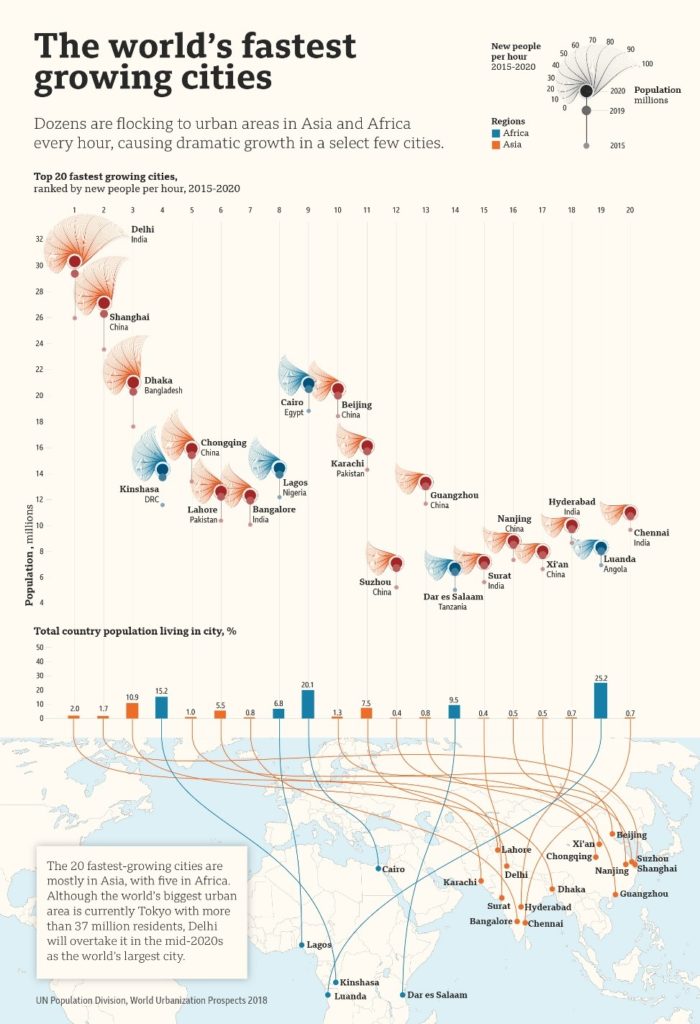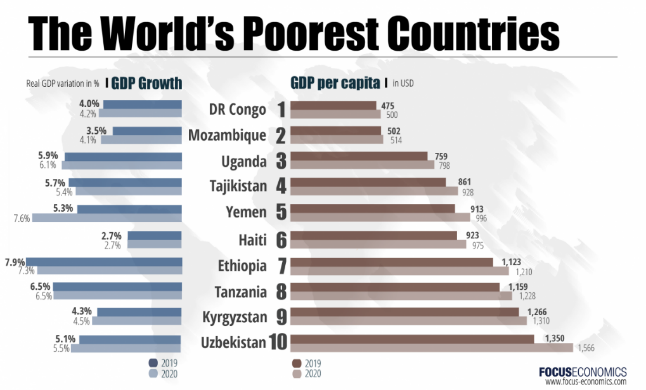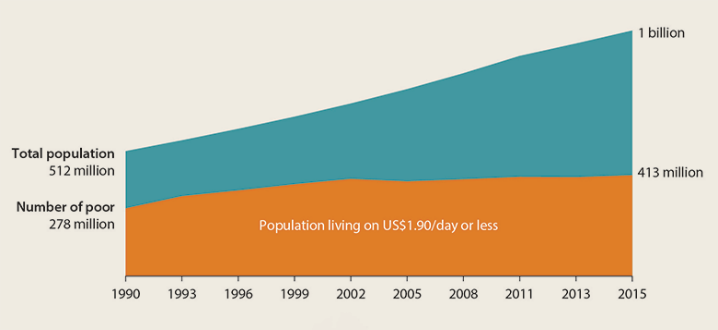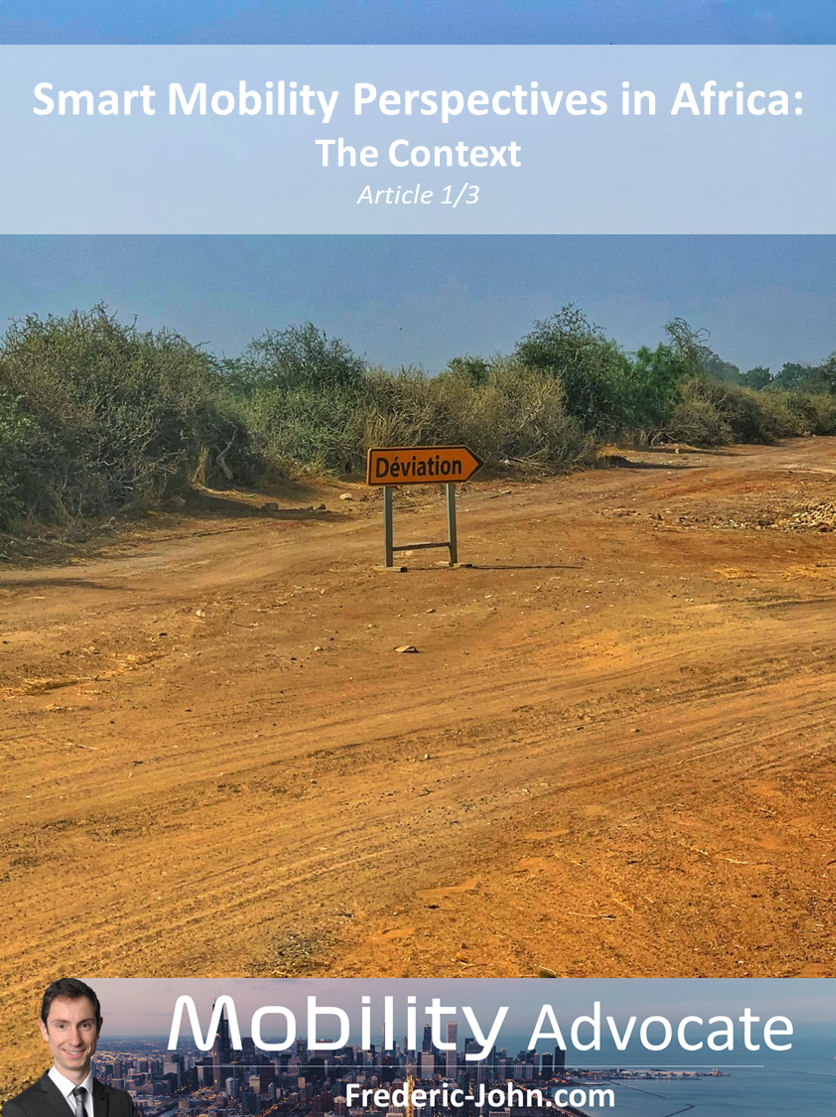[⬆ Picture from my last trip in Africa ⬆]
I have always believed there’s a lot to learn from developing countries in terms of professional and personal developments. I often travelled to Africa and my 1-week MBA assignment in Zambia in 2019 was for me a revealing experience. Through this series of 3 articles, I wanted to understand what smart mobility perspectives are for the African continent. Allow me to make it right, I am not an Africa mobility expert and I just write to increase my knowledge for this region and share interesting insights with you.
What you will learn:
- The African context and why investments are not always successful (this article);
- Suggestions to implement smart mobility solutions and why it may be successful (second article);
- Examples of innovative mobility services and future perspectives (third article).
I collected opinions of thought leaders during interviews to support and illustrate this article [in alphabetic order]:
- Driss Sefrioui, Partner at AltRaise;
- Gary Vermaak, Project Developer at Harambe;
- Hiten Parmar, Director at the National uYilo eMobility Programme (South Africa);
- Peter Pedrick, MD of Electrical Conformance Board and CEO of Framework Africa;
- Rob De Jong, Head of the Air Quality and Mobility Unit at the United Nations Environment Programme.
I cannot be enough grateful for their valuable time and insights.
Here are the companies listed as examples and mini case studies for this series:
- Sun Exchange
- 3D printer from wastes developed by Kodjo Afate Gnikou
- Mellowcabs
- Kiira Motors
- MOVE by VW Rwanda
- Fika Mobility
- Revov
Introduction: Africa has a poor but fast-growing population
Africa’s population is growing and ranks amongst the most dynamic in the world (have a look at the nice infographic from the UN):

40 per cent of the African continent’s 1.2 billion people live in urban cities and it is predicted that by 2030, 50 per cent of these people will be city dwellers. Just FYI, western countries have an urbanization rate of over 80% for a few years.
But Africa is also a poor region. More than 50% of the top 10 poorest countries are from Africa.

The share of extremely poor Africans has fallen due to the fast-growing population but in absolute terms, the size of underprivileged has increased over the last 2 decades [Worldbank]

Why is this continent in such a situation? Here’s an overview of the main factors:
- Ethnic/linguistic diversity generating tensions amongst populations;
- Weak institutions, which is the main factor to leverage the fight against poverty in the view of Professors Niaz Asadullah and Antonio Savoia [from the World Economic Forum];
- Climate and disease;
- Colonial influence and artificial borders, which are sometimes drawn in a way that is more appropriate/convenient for Westerns rather than for Africans;
- The cognitive effects of living in poverty. Rutger Bregman found that poverty has the same cognitive effect than losing a night’s sleep where your IQ decreases by 14 points. The only difference is that you can recover from a difficult night…;
- The impact of aid and foreign investments. For smart mobility projects, this factor is critical and I’ll expand a bit further on this.
Are we driving foreign investments in the right way?

Peter Pedrick, MD of Electrical Conformance Board and CEO of Framework Africa, helped me to understand why investing millions or even billions of USD in Africa is not always and won’t be successful if we do not change our approach. There are three key factors related to this status quo:
- We try to solve African challenges with Western solutions;
- We operate with western tools, technologies, people and mindset with low consideration for the local ecosystem;
- We want to implement centralized solutions, successful in our countries, whereas a decentralized strategy would be a better fit there.
The problem is not that Africa doesn’t know what to do but how to do it
Professor Emmanuel Nnadozie
First, in Peter’s view “there is a lack of understanding of why projects aren’t working in Africa.” While developed countries are pushing their vision of ‘what’ to do, Professor Emmanuel Nnadozie, Executive Secretary for the African Capacity Building Foundation, recently stated that “the problem with Africa’s slow progress is not that Africa does not know ‘what’ to do, rather it lies in not knowing ‘how’ to do it.” As a result, investors see Africa as risky and do not re-invest. In Peter’s opinion “most of the investments are one-shots with no follow-up.” My view is we perhaps put the focus at the wrong place and we should put our ‘ego’ on the side to stop pointing with our fingers what to do and use our hands to the benefit of how to do.
Westerns put the focus on the wrong place
Second, Peter told me that “we address African issues as not being African issues. We approach the African challenges with a western mindset, and it is not the best fit here.” [I provide with an example in the last article] This mismatch attitude combined with wrong advice often leads to unsuccessful investments and propagate “a fear to fail for Africans”. Moreover, 70% of the direct foreign investments are for white western companies. There’s a lack of investments in local companies run by local people which reinforces the negative effects.
70% of the direct foreign investments are for white occidental companies
Third, centralised and urbanised [mobility] solutions are not always the best fit with African countries. “I would keep the rural aspect as high as urbanisation” affirms Peter. One of the Africa specificities is the extraordinary well developed decentralised and rural economy that frankly is disappearing in our countries. Referring to my personal experience, I often was in the middle of nowhere in Senegal, Kenya or Zambia but could buy a can of coke or a pot of Nutella (crucial for my breakfasts!). I can tell how this might be challenging now in a rural environment, for example in Belgium or France, where commercial activities are disappearing.
One of the Africa specificities is the extraordinary well developed decentralised and rural economy dynamism
Therefore centralised, scaled, sizeable projects are in Africa sometimes less efficient than smaller decentralised projects that will address specific issues. So a question for us: Who are we to pretend to be able to bring value-add over there with this spirit whereas we are killing our rural economies?
Centralised, scaled, sizeable projects are in Africa sometimes less efficient than smaller decentralised projects that will address specific challenges
A solution might be in Peter’s view to build “an African consulting structure/network purely focused on Africa that would work with local companies in partnership with western organisations and would understand the local challenges into the global African context.” That is for me a great call to action, so if you want to support him into this project, feel free to contact Peter!
An African consulting structure/network might be the solution
Can Africa Leapfrog Smart Technology Developments?
For my interviewees and me, the answer is YES. It has already happened in the past that advanced technologies were successfully spreading rapidly throughout the continent, skipping infrastructure and investment steps. Interestingly, there are many examples related to mobile applications, essential to the development of smart mobility solutions.
A first example is given by Hiten Parmar, Director of the South-African eMobility programme uYilo: “Fixed line telecommunications had a slow progress, but mobile telecommunications grew exponentially. In Africa, new technology can also advance rapidly.”
A second is explained by Robertus De Jong, Head of the Air Quality and Mobility Unit at the United Nations: “Payment via phone is available for 10 years whereas in EU it is really recent. Something similar could happen with mobility.”
There are many examples of fast technology development related to mobile applications, crucial to smart mobility
Remember that in a smart mobility situation, the most powerful device is not your steering wheel anymore but smartphones that allow you to [un]lock, book, rent, … a vehicle.
Successful technology stories exist in Africa and the key to achieve positive results is to focus on the implementation side of a project. What interests me here is to know how to translate this approach for smart mobility initiatives. This will be the topic of the second article of this series whereas the third one will explore the existing and future of Africa smart mobility.
Please note the following limitation: I am mindful that it is presumptuous to conclude what is true for a part of Africa is true for the entire continent but I have to start somewhere and I’ll try to bring more granularity in my next series!
As always, please share your opinion and engage with me 😊
About Me
Frederic is a Consultant at Neckermann Strategic Advisors. He holds an MBA from Imperial College London Business School and a Master’s Degree in Business Engineering from UMons. He supports companies in understanding how the Mobility Revolution will change their business. Frederic is the co-author of multiple smart mobility research reports and one of the contributors to the Global New Mobility Coalition led by the World Economic Forum. He is also a mobility guest lecturer at Universities, a blogger @ Frederic-john.com and mentors mobility start-ups in London and Singapore. He is fluent in French and English and also speaks some Spanish and Dutch.
The views expressed in this article are personal and do not represent the opinion of my employer or any other parties I am involved with. The suggested insights come from my discussions, research and analyses.

